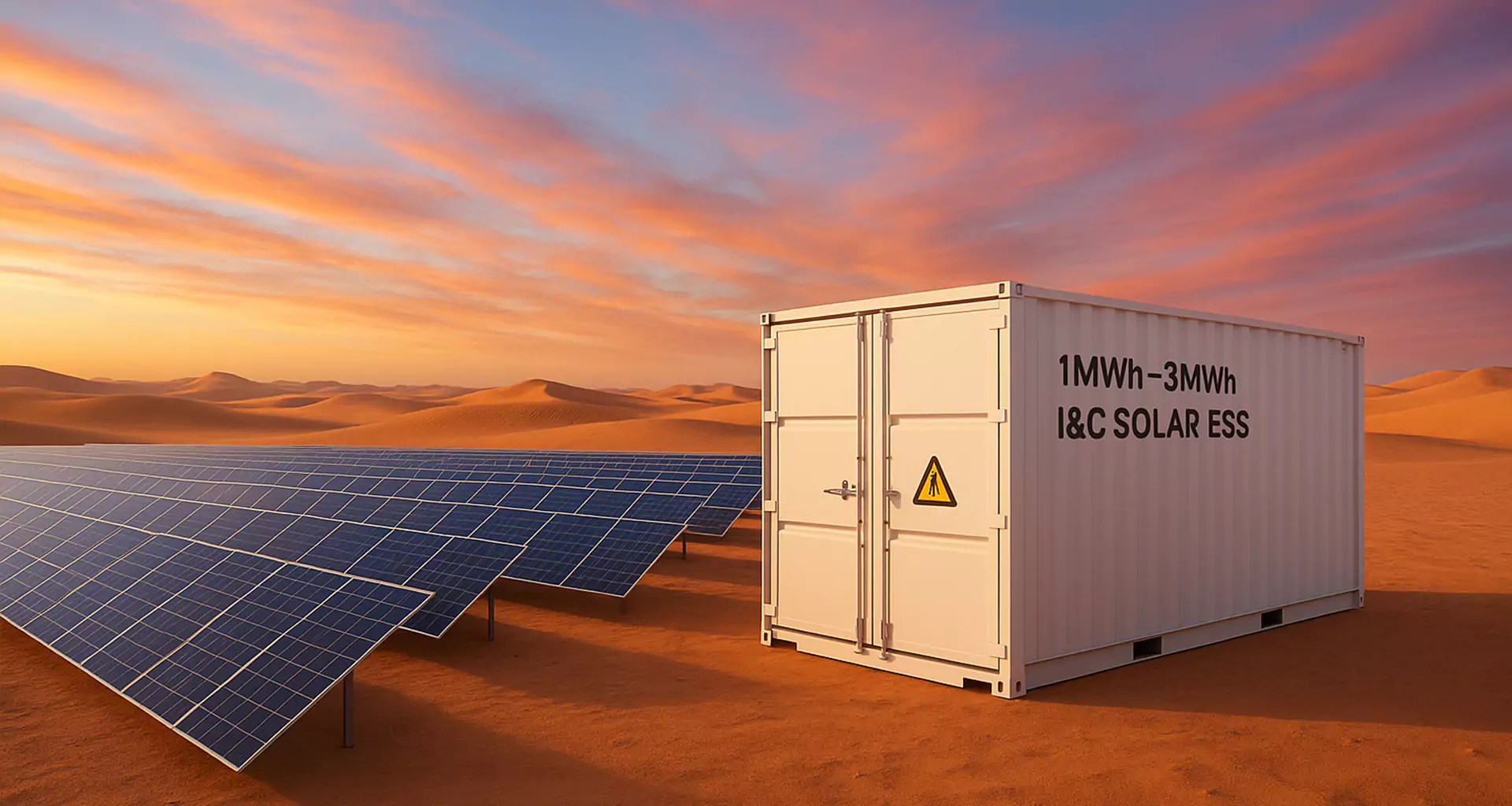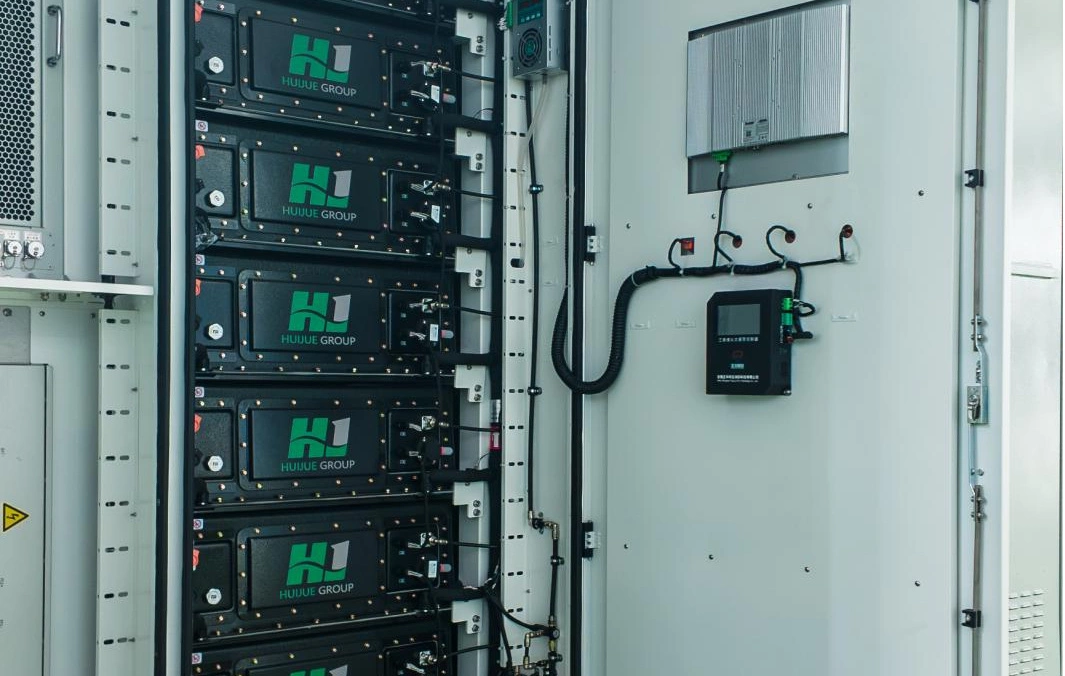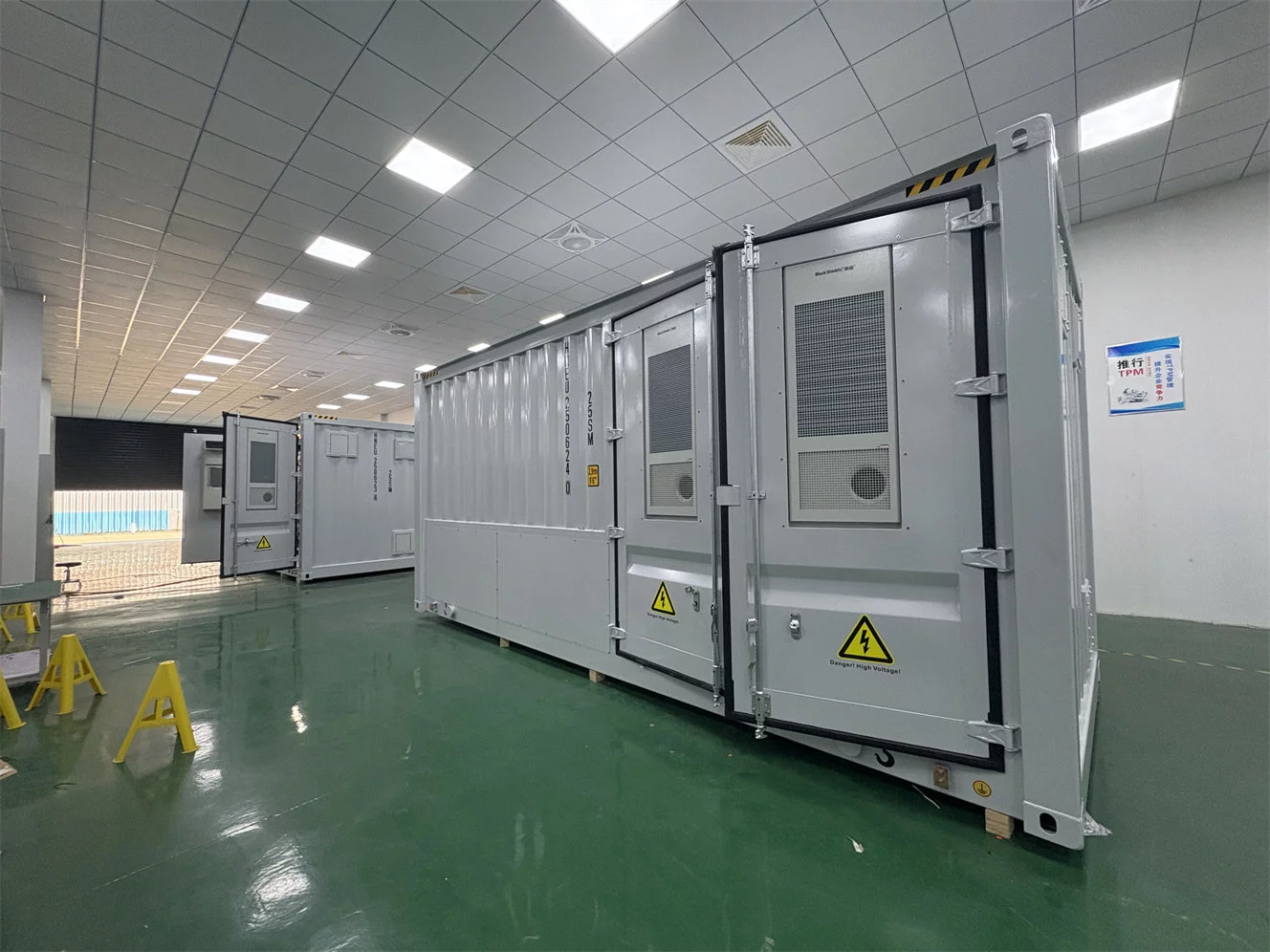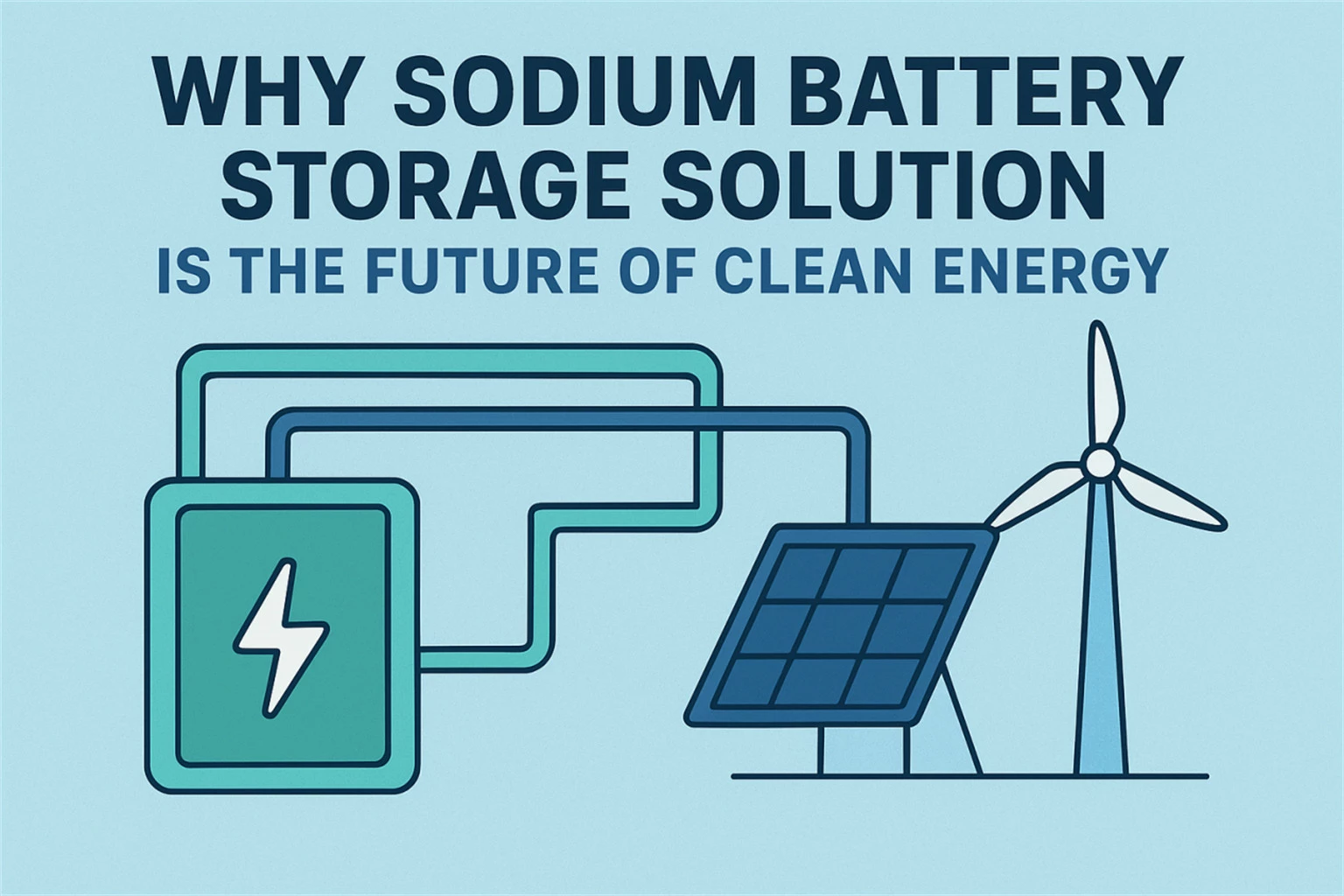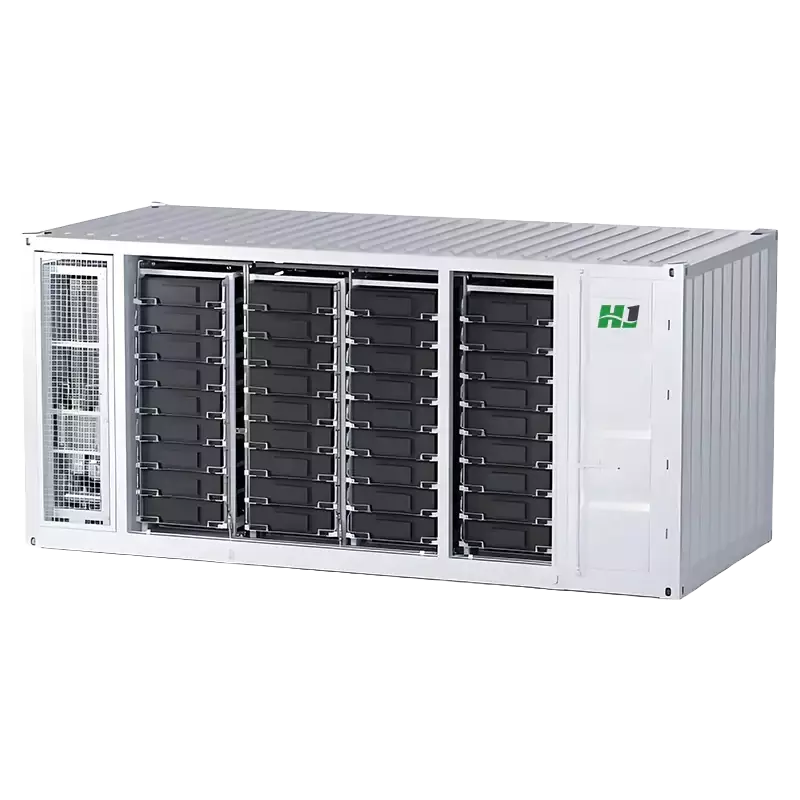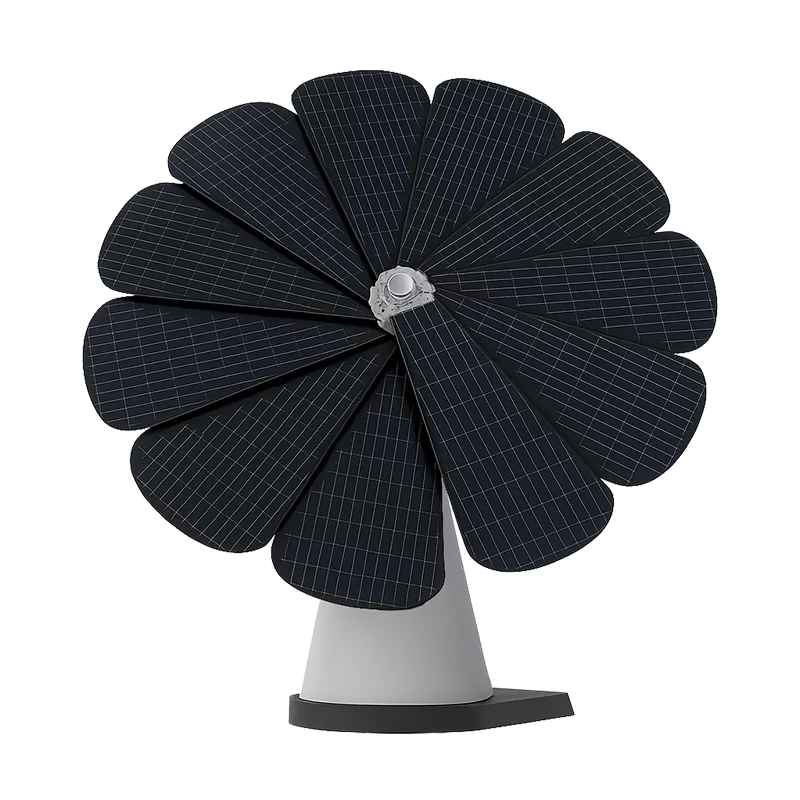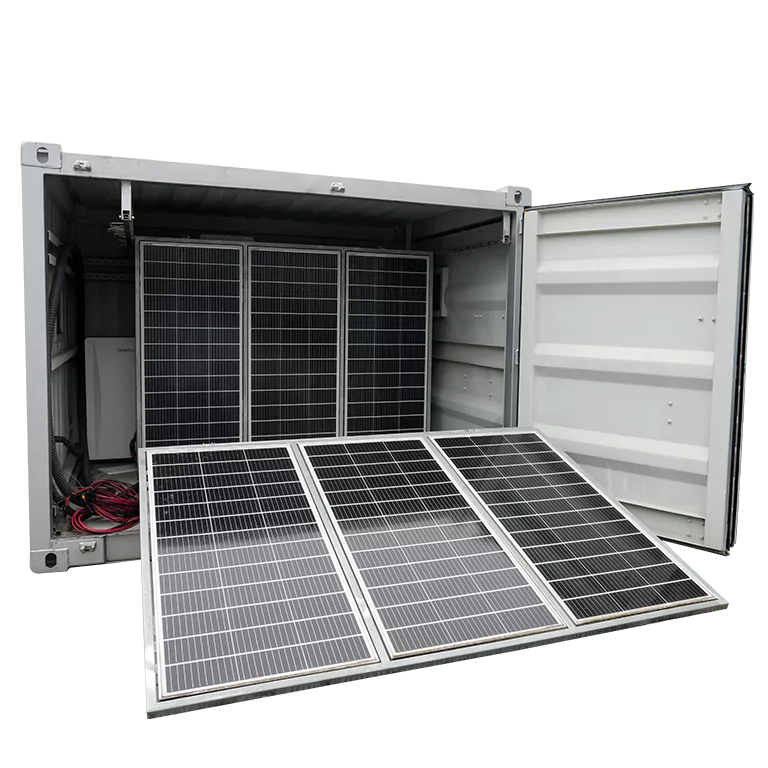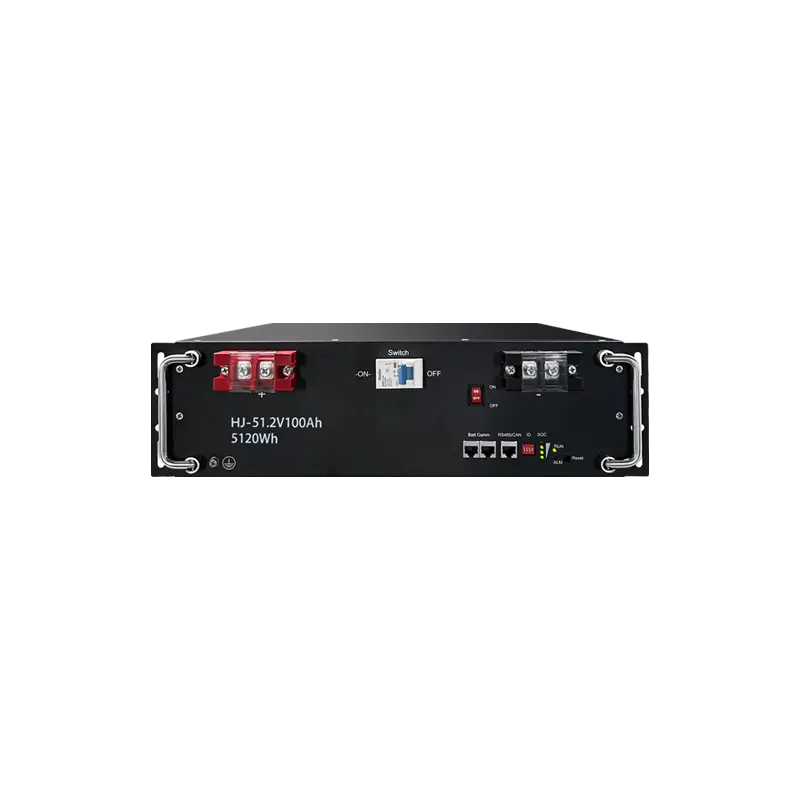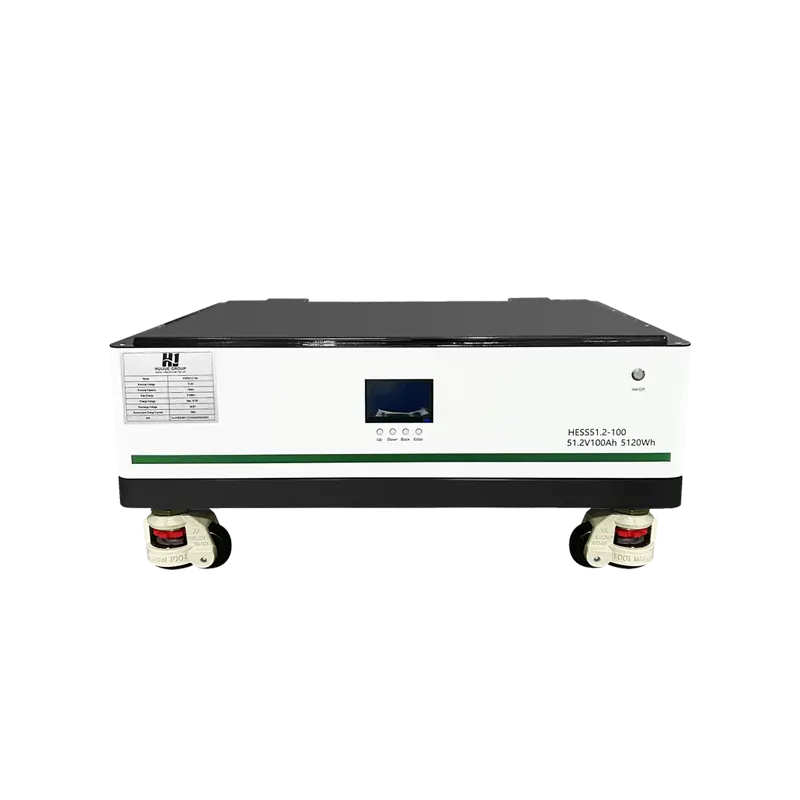BTS Hybrid Power Systems Offer the Best ROI for Telecom Operators
Introduction
The telecommunications industry is increasingly shifting towards sustainable energy solutions for base stations, with hybrid power systems playing a pivotal role. This article explores the return on investment (ROI) of BTS hybrid power systems, including cost savings, environmental benefits, and efficiency improvements. We’ll analyze the key factors that contribute to a high ROI, compare technologies, and provide real-world case studies to demonstrate their effectiveness.
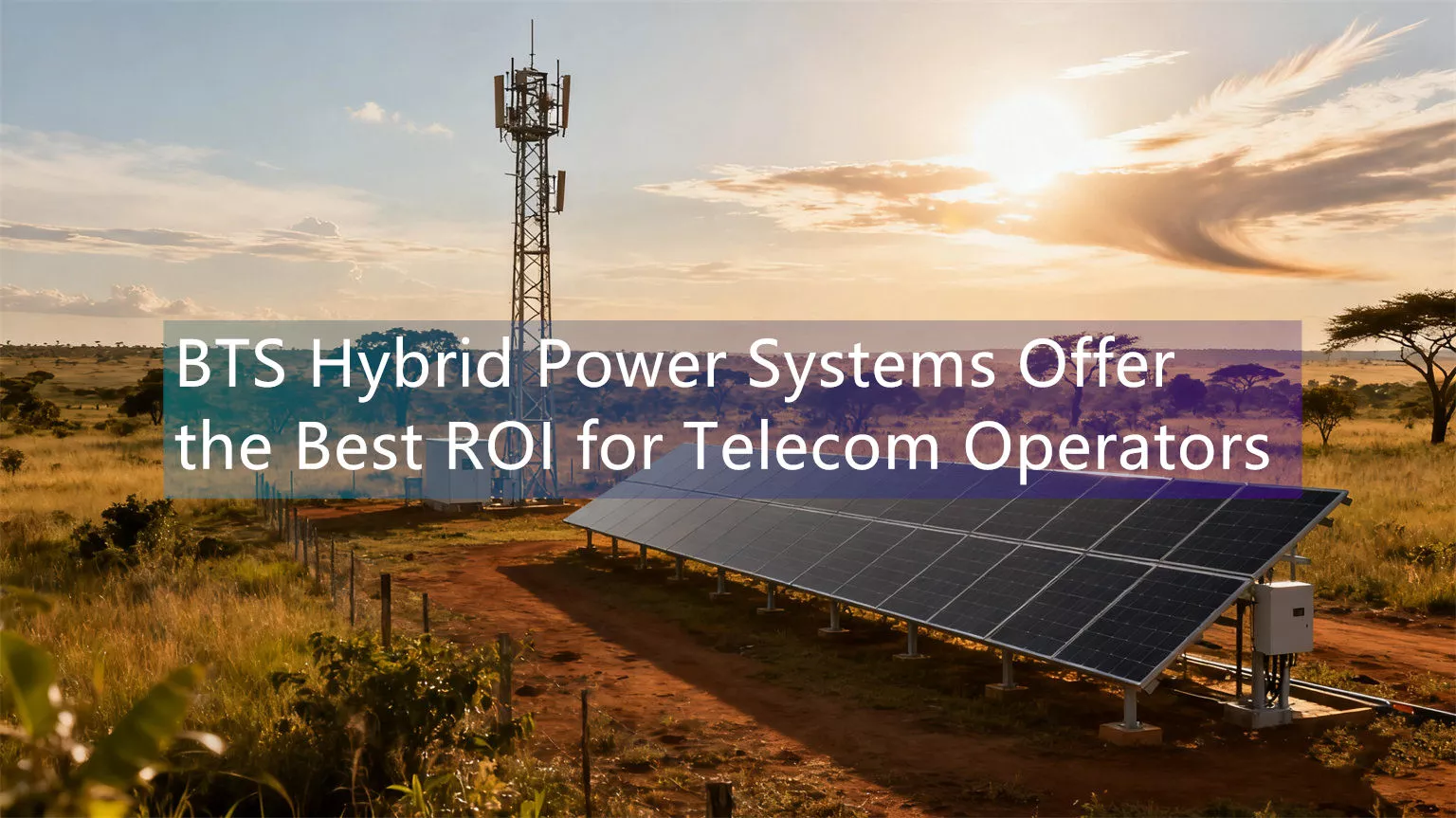
1. What is a BTS Hybrid Power System?
BTS hybrid power systems combine different energy sources—typically solar, wind, and battery storage—to power telecom base stations. These systems are designed to optimize energy use, reduce reliance on diesel generators, and cut operational costs.
- Solar Power: A renewable energy source that provides clean and cost-effective electricity.
- Wind Power: An additional renewable source that can complement solar energy.
- Battery Storage: Stores energy generated during peak periods for use during off-peak times or in emergencies.
The integration of these power sources offers flexibility and ensures continuous power availability, even in remote or off-grid locations.
2. Why Are BTS Hybrid Power Systems an Attractive Investment?
Cost Savings
The main attraction of BTS hybrid power systems lies in their cost-efficiency. These systems reduce dependency on traditional diesel generators, which are expensive to maintain and fuel. By harnessing renewable energy sources, telecom operators can significantly lower fuel costs and maintenance expenses.
Additionally, many regions offer subsidies or incentives for adopting green energy solutions, improving the return on investment.
Environmental Impact
With growing pressure to meet sustainability goals, BTS hybrid power systems reduce the carbon footprint of telecom operations. By shifting to renewable energy, telecom companies can align with global environmental standards and improve their corporate image.
Reliability and Continuity of Power
In regions with unreliable grid power, hybrid systems ensure consistent power supply, enhancing network uptime and minimizing service disruptions. This reliability is critical for telecom providers, especially in areas that rely heavily on uninterrupted service.
3. BTS Hybrid Power ROI: A Detailed Breakdown
Initial Investment vs. Long-Term Savings
While the initial setup cost of a BTS hybrid power system can be high, the long-term savings outweigh the upfront expenditure. By integrating renewable energy solutions, telecom providers can reduce energy costs by up to 70%. Over time, these savings can compensate for the initial capital outlay, leading to a high ROI.
Additionally, with battery storage integration, telecom stations can store energy during low-demand periods, thus reducing grid dependence and further lowering costs.
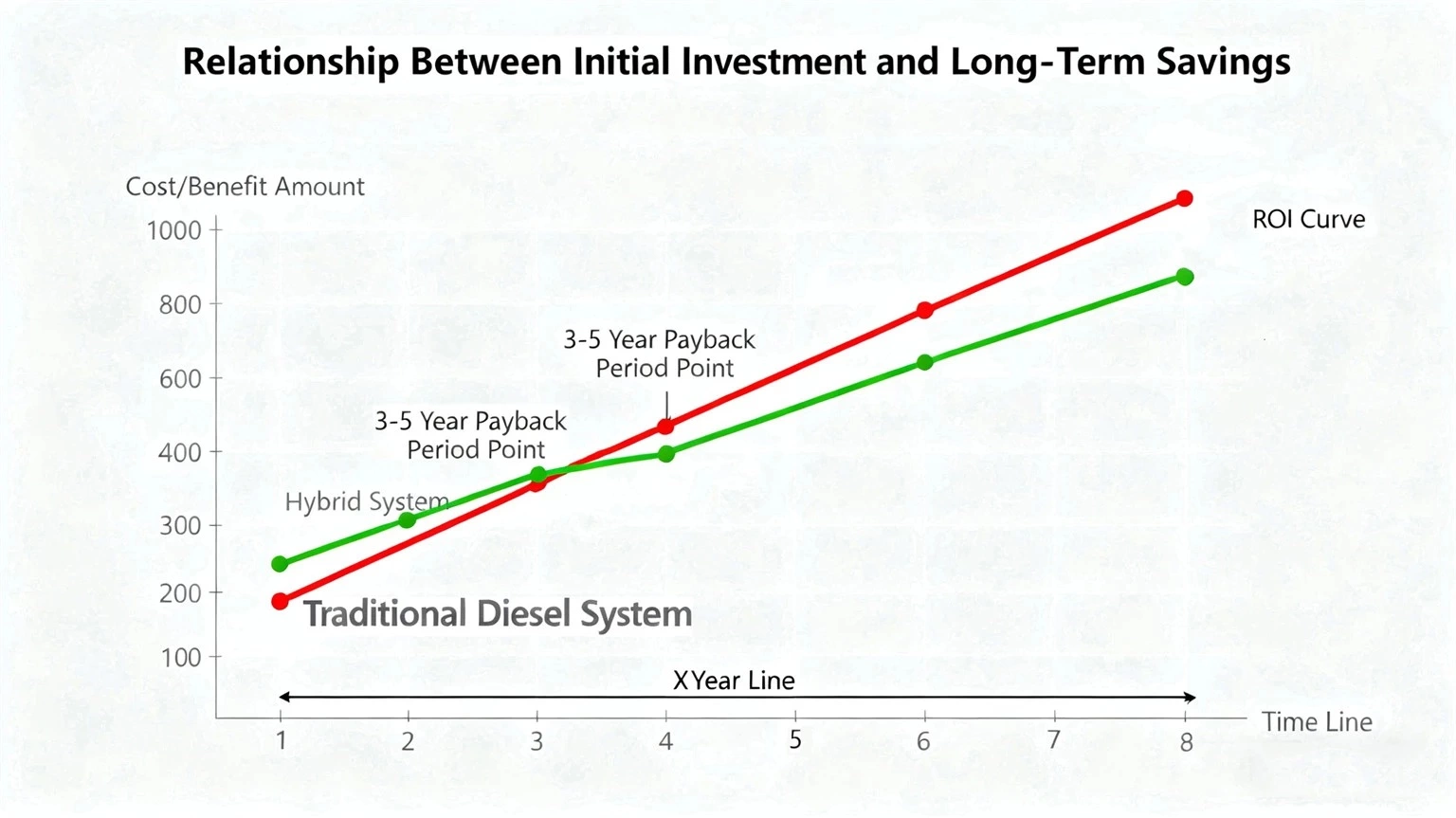
Payback Period
The typical payback period for BTS hybrid power systems ranges from 3 to 5 years, depending on factors like the system’s size, location, and local energy costs. After this period, the system starts generating positive returns, with operational costs significantly reduced.
4. Comparing BTS Hybrid Power Systems: Key Parameters
To evaluate the ROI, it is important to compare the key technical parameters of hybrid power systems available in the market:
| Feature | Highjoule BTS Hybrid Power | Competitor A | Competitor B |
|---|---|---|---|
| Energy Capacity | 10 kW | 8 kW | 12 kW |
| Storage Capacity | 50 kWh | 40 kWh | 60 kWh |
| Cooling Method | Liquid Cooling | Air Cooling | Liquid Cooling |
| Efficiency | 95% | 90% | 92% |
| Dimensions | 10x8x10 ft | 12x8x10 ft | 10x9x11 ft |
Highjoule’s hybrid power systems are specifically designed for maximized efficiency and reduced space requirements, ensuring that telecom operators get the best value for their investment.
For more information, visit our product page.
5. Application Scenarios: Real-World Case Studies
Case Study 1: Telecom Base Station in Remote Africa
In a remote region of Africa, a telecom operator implemented a hybrid power system combining solar and battery storage. The system was designed to power a base station that was previously dependent on diesel generators. After installation, the operator saw a 40% reduction in operating costs and achieved a 3-year payback period. The base station is now more reliable, and the environmental impact has significantly decreased.
Case Study 2: Urban Telecom Base in Europe
In a European city, a telecom company deployed a hybrid power system to support its urban base station. The integration of wind power alongside solar energy helped the company meet sustainability goals while reducing energy bills by 30%. The system also provided the company with energy security during grid outages, ensuring continued service delivery.
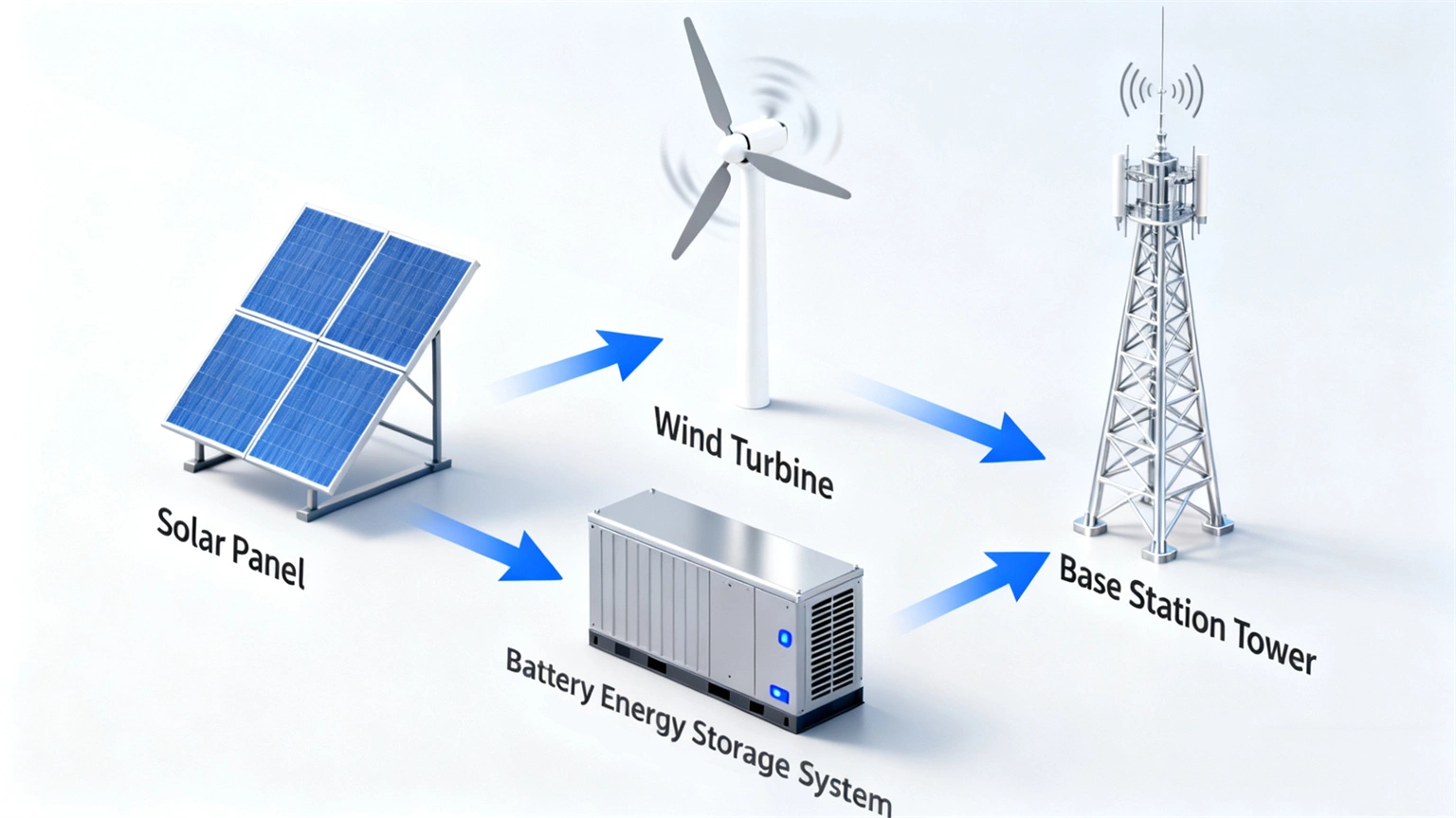
6. After-Sales Support and Service
Highjoule offers robust after-sales support, including:
- 24/7 technical assistance to resolve any operational issues.
- Comprehensive warranty on all systems, ensuring peace of mind for telecom providers.
- Local service teams to handle maintenance and troubleshooting quickly.
This level of support enhances the ROI by minimizing downtime and maximizing the lifespan of the system.
7. Conclusion and Call to Action
BTS hybrid power systems are a compelling investment for telecom companies looking to reduce costs, improve reliability, and meet sustainability goals. With short payback periods, long-term savings, and positive environmental impacts, the adoption of hybrid power systems offers an attractive ROI.
For more information about our BTS hybrid power solutions, and to explore how they can benefit your telecom operations, contact us today
FAQ
What is the payback period for a BTS hybrid power system?
The typical payback period for BTS hybrid power systems is 3 to 5 years, depending on the system size and location.
Can a BTS hybrid power system work in remote areas?
Yes, BTS hybrid power systems are ideal for off-grid locations or areas with unreliable electricity. They provide a continuous power supply, even in the most remote locations.
How does battery storage enhance the ROI?
Battery storage allows telecom stations to store excess energy during peak generation periods and use it during off-peak hours, reducing dependency on the grid and lowering energy costs.
Find Your Solar + Battery Storage Specialist Now!
* Fill out this form and our experts will help you find the perfect solar storage solution for your home or business.


